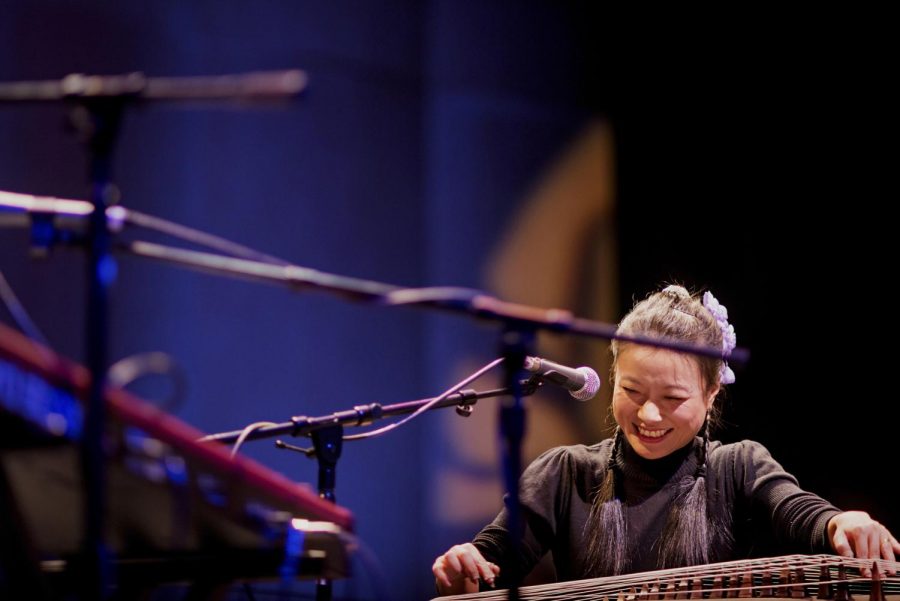Wu Force fuses sounds of China and the U.S.
February 6, 2014
Students, faculty and small children snapped their fingers and sang along to the rhythms of the Wu-Force Tuesday night. The performance featured costume changes, instrumental harmonies and bilingual lyrics sung in English and Chinese.
“It was awesome,” Katie Roberts, a Bowling Green sophomore, said. “A lot of my friends wanted to come.”
Ke Peng, a Chinese professor in the Department of Modern Languages, helped introduce the Wu-Force.
“Their music help us see a world without barriers,” Ke said. “A world with ultimate possibilities.”
The Wu-Force featured Kai Welch, Wu Fei and Abigail Washburn.
Washburn, who sang and played the banjo, thanked the audience for coming despite the cold rainy weather.
“Thank you for being absolute heroes of the weather,” Washburn said. “I can’t believe you’re here!”
Many songs featured lyrics in English and Chinese. For one, Welch sang and strummed his acoustic guitar as Wu played her guzheng and Washburn picked her banjo. Welch sang lyrics in English, while Wu and Washburn sang back in Chinese.
Washburn introduced Welch as a guy who was conceived in a teepee, raised in a cabin and “ran around naked until he was at least five,” and said Wu played the guzheng like a wild woman.
Washburn also talked about her own suburban background.
“I thought I was gonna be a lawyer, cause that was practical,” she said. “And I’m playing banjo in a weird kung-fu Appalachian indie folk rock band.”
One song, called “Swallow Bridge,” told the Chinese story of a daughter of heaven who fell in love with a sheepherder. However, the father of the daughter wanted to keep the two separate. So all the swallows made a bridge between heaven and earth to connect the two, Washburn said.
Wu, who previously went backstage, emerged in a white dress and sang while gently waving a fan.
Wu amused the audience again with another costume change to play the part of a bearded old man in a song about a rural girl who travels to Shanghai.
Later, the band invited the audience to sing along with a song called Wu-Force, a song about the meaning of the band’s name.
“Wu can mean a lot of things in Chinese,” Washburn said. “But in this song it means the nothing that means the potential for everything.”
The song was a rare one that the Wu-Force had performed only twice, Welch said.
Wu-Force ended its performance with a song called Ya Li Da which means big pressure or big pair, depending on how it’s pronounced.
After the performance Ke Peng explained her reaction to the trio.
“It’s very smart. It’s atypical,” Ke said. “It’s simple but you get the idea.”
Washburn said that she wants to leave the performance with a perspective.
“Think about the possibility of new combinations,” Washburn said.


























